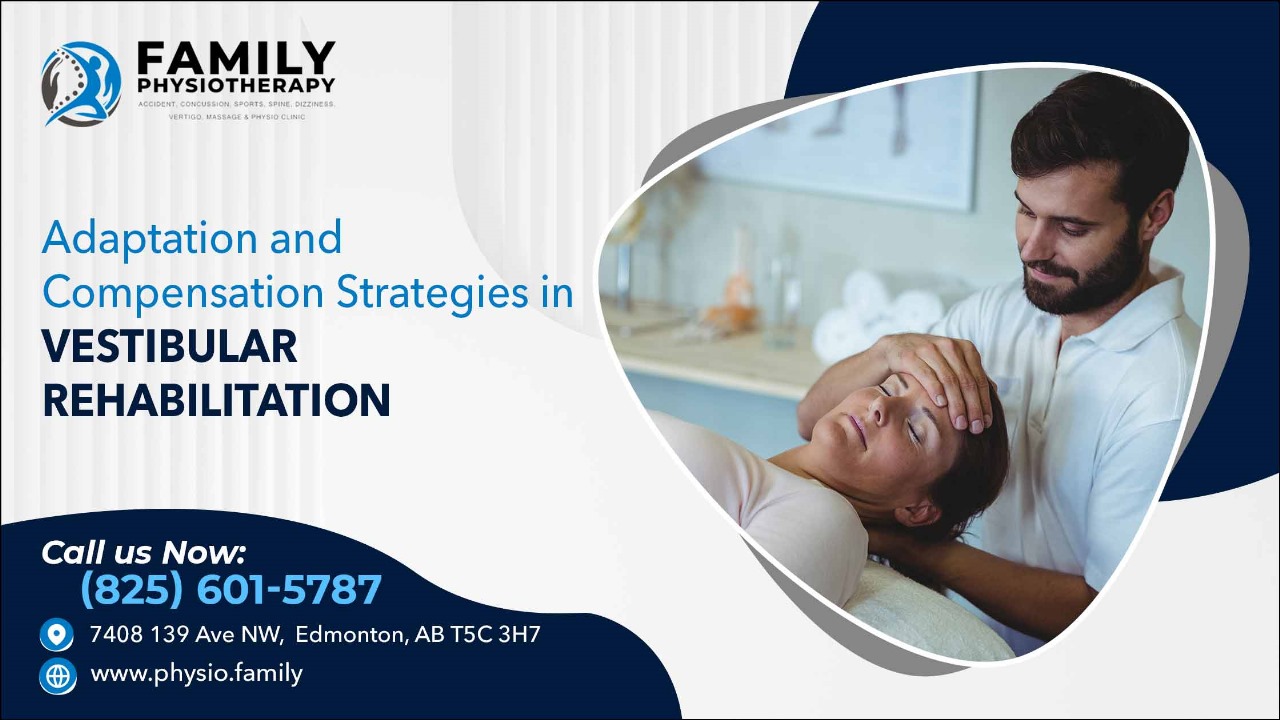Vertigo and dizziness physiotherapy has gained significant traction as a go-to solution for patients grappling with balance and spatial orientation issues. Often, these challenges are rooted in complications associated with the vestibular system, which plays a pivotal role in maintaining equilibrium. In cities like Edmonton, clinics like Family Physiotherapy Edmonton have techniques and strategies aimed at facilitating vestibular recovery. Central to these efforts are adaptation and compensation strategies, cornerstones of effective vestibular rehabilitation.
Understanding Vestibular Dysfunction
Before diving into the specifics of rehabilitation strategies, it’s essential to comprehend the fundamentals of vestibular dysfunction. The part of our inner ear that helps with balance and spatial understanding is called the vestibular system. When this system is compromised, individuals may experience dizziness, vertigo, and problems with coordination. The origins of these issues can range from infections and aging to traumatic injuries and other medical conditions.
Adaptation Techniques in Vestibular Rehabilitation
Adaptation is a rehabilitation approach where repetitive exposure to a provocative stimulus helps reduce the intensity of dizziness and disequilibrium. It’s akin to “retraining the brain” to recognize and cope with problematic signals.
- Gaze Stabilization: These exercises are fundamental in vestibular rehabilitation. They aim to improve the ability of the eyes to focus on a stationary object while the head is moving. The principle is to challenge the vestibulo-ocular reflex, which allows for clear vision during head movements. By practicing these exercises, patients can reduce symptoms like blurriness or dizziness during head motion.
- Dynamic Visual Acuity Training: This involves enhancing the ability to see clearly when in motion. Patients might be asked to read a chart while moving their heads or while walking, challenging their vestibular and visual systems simultaneously.
- Positional Exercises: These can be beneficial for conditions like Benign Paroxysmal Positional Vertigo (BPPV). They involve a series of head and body movements to help relocate misplaced inner ear crystals.
- Balance Training: Enhancing balance can counteract the disorienting effects of vestibular disorders, bolstering confidence in patients to perform daily activities.
- Habituation Exercises: For those with dizziness provoked by specific movements or situations, habituation exercises are designed to reduce the intensity of dizziness over time. By repeatedly exposing the patient to the provocative stimulus in a controlled manner, the brain learns to respond less dramatically to it.
Compensation: Embracing Alternate Pathways
When certain parts of the vestibular system are irreparably damaged, compensation comes into play. This approach taps into the brain’s remarkable plasticity, encouraging it to use other sensory inputs, like vision and proprioception, to make up for lost vestibular function.
- Sensory Strategy Training: This entails capitalizing on other sensory feedback mechanisms to maintain balance when vestibular inputs are unreliable.
- Functional Retraining: Activities that provoke symptoms are gradually introduced, enabling patients to reclaim their routines without undue discomfort.
- Feedback Mechanisms: Biofeedback or other tools might be used to give patients real-time data on their postural control, helping them understand their progress and areas that need focus.
Both adaptation and compensation are pillars of effective vestibular rehabilitation. They epitomize the body’s incredible resilience and ability to find solutions even when primary systems are compromised. With dedicated vestibular physiotherapy, patients can navigate their worlds with greater assurance and improved quality of life.
Vestibular Physiotherapy Edmonton: A Hub for Excellence
Physiotherapy Centers in Edmonton have emerged as trusted Vestibular Physiotherapy Edmonton hubs, underpinned by their dedication to evidence-based treatment and a comprehensive understanding of the vestibular system. The therapists employ a mix of adaptation and compensation strategies, providing personalized care tailored to each patient’s unique needs.
The Broader Impact of Vestibular Rehabilitation
Beyond merely addressing dizziness and balance concerns, vestibular rehabilitation can have far-reaching effects. I
- Enhanced Neural Plasticity: The central nervous system, particularly the brain, possesses an impressive ability called neural plasticity. This means that the brain can change and adapt its functioning based on experiences. Vestibular rehabilitation takes advantage of this by using exercises and stimuli that encourage the brain to “relearn” and “adapt” to the changes in the vestibular system.
- Reduction of Dizziness and Vertigo: Through continuous exposure to triggering stimuli in controlled environments and scenarios, the brain learns to manage better and often reduces sensations of dizziness or vertigo.
- Fall Prevention: A direct result of improved balance and spatial orientation is a decreased risk of falls, which can be a significant hazard for individuals with vestibular disorders.
- Cognitive Coping Techniques: It’s not uncommon for individuals with vestibular disorders to experience anxiety, panic attacks, or depression. Part of the rehabilitation process is teaching patients cognitive strategies to cope with these emotions and reduce the anxiety associated with dizziness or vertigo.
Moreover, the structured progression of exercises ensures that rehabilitation is both safe and effective.
The Synergy of Adaptation and Compensation
In the realm of vertigo and dizziness physiotherapy, the interplay between adaptation and compensation stands as a testament to the body’s incredible resilience and adaptability. With guidance from reliable establishments like Family Physiotherapy Edmonton, patients can reclaim their balance, confidence, and vitality, navigating the world with renewed assurance.
